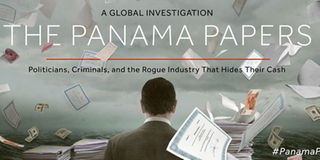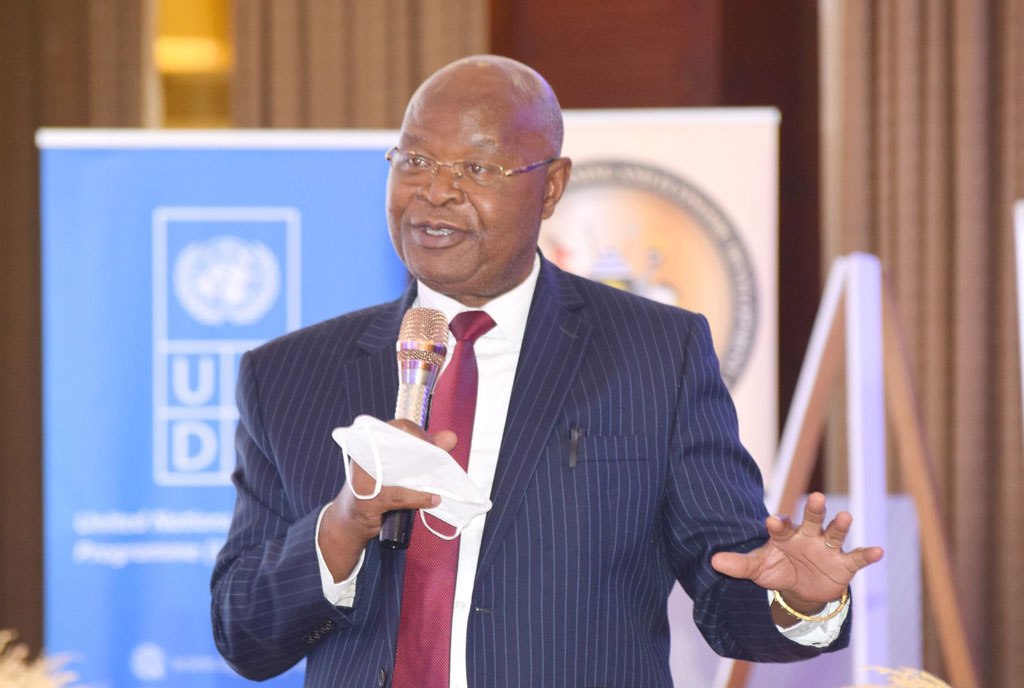Panama papers: About the project and key numbers

The Panama Papers is an unprecedented investigation that reveals the offshore links of some of the globe’s most prominent figures.
What you need to know:
Scandal. A huge leak of confidential documents has revealed how the rich and powerful use tax havens to hide their wealth. Eleven million documents were leaked from one of the world’s most secretive companies, Panamanian law firm Mossack Fonseca, and were passed to German newspaper Suddeutsche Zeitung, which then shared them with the International Consortium of Investigative Journalists (ICIJ)
Panama city.
The Panama Papers is an unprecedented investigation that reveals the offshore links of some of the globe’s most prominent figures.
The International Consortium of Investigative Journalists, together with the German newspaper Suddeutsche Zeitung and more than 100 other media partners, spent a year sifting through 11.5 million leaked files to expose the offshore holdings of world political leaders, links to global scandals, and details of the hidden financial dealings of fraudsters, drug traffickers, billionaires, celebrities, sports stars and more.
The trove of documents is likely the biggest leak of inside information in history. It includes nearly 40 years of data from a little-known but powerful law firm based in Panama. That firm, Mossack Fonseca, has offices in more than 35 locations around the globe, and is one of the world’s top creators of shell companies, corporate structures that can be used to hide ownership of assets.
ICIJ’s analysis of the leaked records revealed information on more than 214,000 offshore companies connected to people in more than 200 countries and territories.
The data
The data includes emails, financial spreadsheets, passports and corporate records revealing the secret owners of bank accounts and companies in 21 offshore jurisdictions, including Nevada, Hong Kong and the British Virgin Islands.
ICIJ’s data and research unit indexed, organised and analysed the 2.6 terabytes of data that make up the leak, using collaborative platforms to communicate and share documents with journalists working in 25 languages in nearly 80 countries.
The largest cross-border journalism collaboration ever has uncovered a giant leak of documents from Mossack Fonseca, a global law firm based in Panama.
Notable Africans in the leaked ‘Panama Papers’
Here are the stories of current or former senior African officials, relatives of presidents and VIPs, or business people featured on this list.
Ahmad Ali al-Mirghani, former Sudanese president. Al-Mirghani died in November 2008. He was president of Sudan from 1986 to 1989. According to the leaked documents, he owned a London apartment
He was the owner of the British Virgin Islands company Orange Star Corporation, created in 1995. At the time of al-Mirghani’s death, he held assets through the company worth $2.72 million.
Alaa Mubarak, son of former Egyptian president. He is a the eldest son of ousted former Egyptian President Hosni Mubarak. He owned the British Virgin Islands firm Pan World Investments Inc., managed by Credit Suisse.
Clive Khulubuse Zuma, nephew of South African president. A mining magnate, Khulubuse Zuma reportedly has a lavish lifestyle. In June 2015, a South African court found Zuma liable as chairman in the collapse of a gold mining company that led to more than 5,000 job losses.
John Addo Kufuor, son of Ghana’s former president. He is the eldest son of John Agyekum Kufuor, Ghana president between 2001 and 2009. His offshore company controlled a $75,000 bank account for Kufour and his mother.
Mamadie Touré, widow of former president of Guinea. She is the widow of Lansana Conté, the former dictator and president of Guinea. US authorities allege Touré received $5.3 million in bribes to help a mining company obtain rights to the world’s richest iron ore deposit.
Jaynet Désirée Kabila Kyungu, DR Congo member of parliament. She is the twin sister of Joseph Kabila, the president of the Democratic Republic of the Congo. Offshore company has holding in Congo’s wireless communications business. Keratsu Holding Limited was incorporated in Niue on June 19, 2001, a few months after Kyungu’s brother became president of the Democratic Republic of the Congo.
Emmanuel Ndahiro, Rwanda’s former Chief of Intelligence.
He served as president Paul Kagame’s physician, security adviser and spokesman. Inside the Mossack Fonseca data: Director in offshore company owned by an army colleague. He became a director of British Virgin Islands company Debden Investments Limited in September 1998.
Attan Shansonga, Former Zambian ambassador to the US. He was ambassador of Zambia to the United States between 2000 and 2002. He was arrested in the Zambian capital of Lusaka in 2002 amid an investigation into the diversion of millions of dollars out of Zambia when President Frederik Chiluba’s was in office.
Kojo Annan, son of former United Nations secretary general. The Swiss company Cotecna hired Annan in 1995 for work in Nigeria. By early 1998, he had quit to become a consultant to Cotecna. Months later, the United Nations awarded the firm a contract as part of Oil-for-Food humanitarian programme in Iraq, prompting allegations of impropriety. However, an independent panel investigation found no evidence that he tried to influence or use family connections to benefit from the programme.
The secret files:
Records. Include 11.5 million records, dating back nearly 40 years – making it the largest leak in offshore history. Contains details on more than 214,000 offshore entities connected to people in more than 200 countries and territories. Company owners in billionaires, sports stars, drug smugglers and fraudsters.
Politicians. Reveal the offshore holdings 140 politicians and public officials around the world – including 12 current and former world leaders. Among them: the prime ministers of Iceland and Pakistan, the president of Ukraine, and the king of Saudi Arabia.
Transactions. Document some $2 billion in transactions secretly shuffled through banks and shadow companies by associates of Russian President Vladimir Putin.
Names. Include the names of at least 33 people and companies blacklisted by the U.S. authorities for doing business with drug traffickers, terror groups and or rogue nations like North Korea and Iran.
Banks. Show how major banks have driven the creation of hard-to-trace companies in offshore havens. More than 500 banks their subsidiaries and their branches – including HSBC, UBS and Société Générale – created more than 15,000 offshore companies for their customers through Mossack Fonseca.



